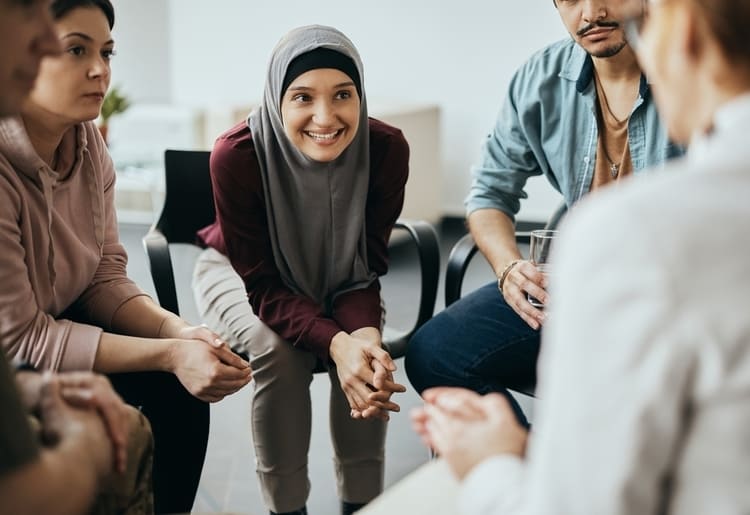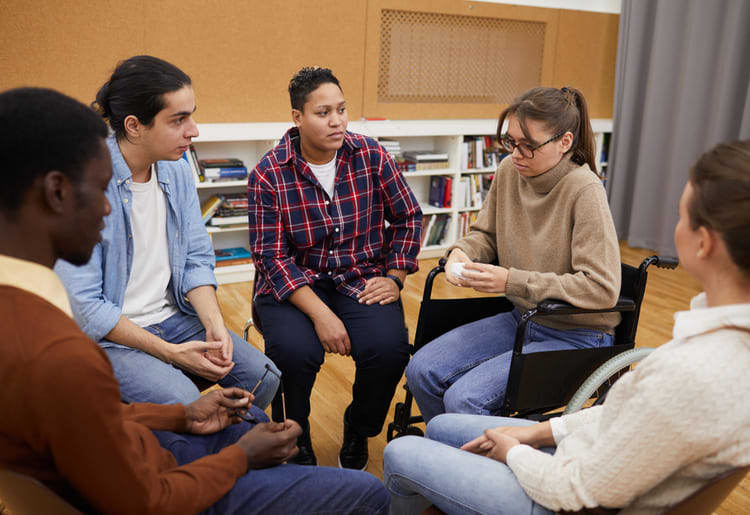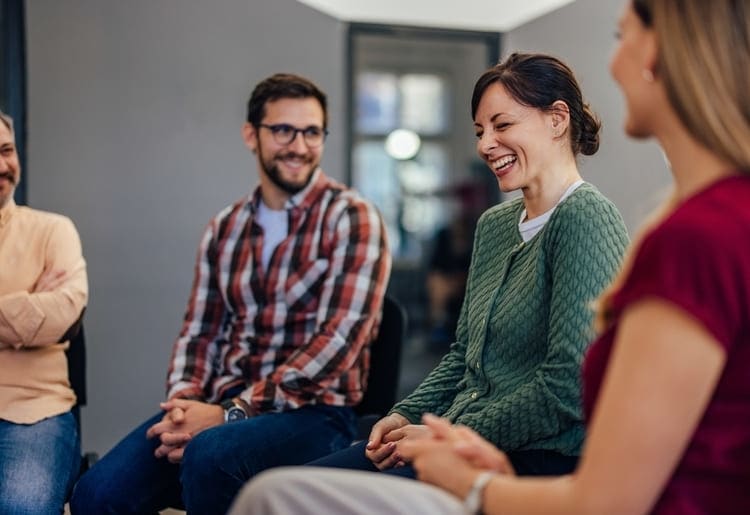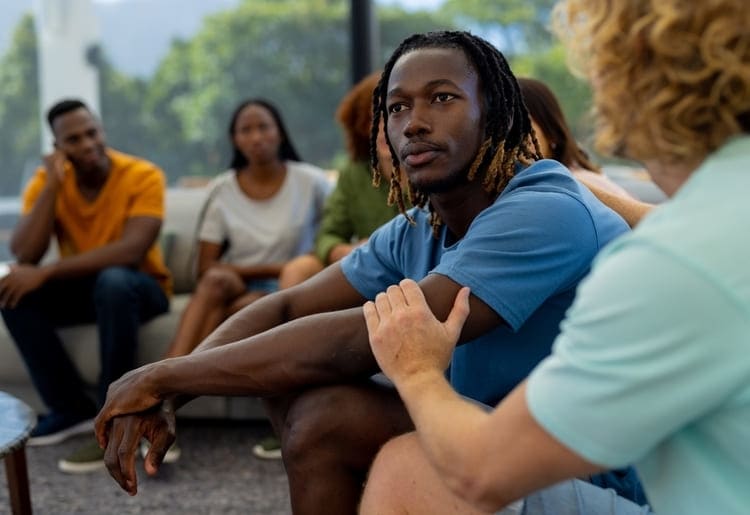Online group therapy isn't just about convenience; it's about connection. As a therapist, I've led my share of online group sessions, from support groups and skills development to psychoeducational sessions, where we offer practical tools for mental well-being.
I've experienced firsthand the transformative benefits as a participant, too. From gaining insight into personal challenges to learning how to shift perspectives, the growth is immense. And the science backs it up: Studies show that online therapy is effective, and it's growing in popularity.
But it's not just about showing up; it's about active participation and openness to change. That's why I'm exploring ways to maximize your online group therapy experience—before, during, and after your session.
Prepare for Online Group Therapy
Preparing for online group therapy involves both mental and logistical readiness. Mentally, it's important to find a quiet, distraction-free space that allows you to be present and participate actively in the session. Set aside time to journal, meditate, or reflect before the session begins. This can help you identify specific feelings to share.
Logistically, I would also recommend closing out other programs and tabs on your device to minimize distractions and maximize your connectivity and speed. Silencing your phone alerts can help you be more present, too.
Make your home environment conducive to your therapy experience. A designated, clutter-free space that induces calm can help get you in the right headspace. You may also find that a warm beverage and comfortable clothing help you relax more fully, making you more inclined to open up and listen to others in the session.
» Seeking affordable mental healthcare? Explore online therapy costs now.

Actively Participate and Engage
Active participation and engagement in online group therapy are fundamental to reaping its benefits. Strategies such as jotting down thoughts and notes on topics for further discussion can promote active listening. Plus, keeping your camera on can enhance group engagement, trust, and accountability.
Balance sharing your experiences with listening and offering support to others. If you're comfortable speaking, be mindful of others' engagement. If you're shy, challenge yourself to speak up at least once in every session. Learning how to offer support can be as simple as asking what would be most helpful.
In my personal experience, active participation profoundly affects personal growth and healing. Sharing experiences, offering support, and listening intently foster a sense of connection and presence. It enhances the ability to relate to others, reducing feelings of isolation.

Build Trust and Connection
If we don't trust other online group members or feel connected with them, we won't feel comfortable opening up. We also won't get much out of the group we're in.
I've witnessed how even one withdrawn member can stifle the group's ability to open up. When we confront these attitudes and change our behaviors, the group begins to progress.
To get the most out of your group therapy sessions, make sure to:
- Be present and authentic
- Actively listen
- Validate others' emotions
- Acknowledge your challenges and vulnerabilities openly
- Stay consistent—showing up regularly and on time builds trust
- Prioritize confidentiality and avoid sharing outside the group

Manage Challenges and Difficult Emotions
In online group therapy, dealing with challenges and emotions is key. This is a powerful opportunity for a group leader to guide participants in developing healthy confrontation, assertiveness, and problem-solving techniques.
When discussing sensitive topics, remember the ground rules: respect, non-judgment, and no blaming. If a topic makes you uneasy, speak up. It's okay to take a break if you need it.
The "ouch-oops" protocol is a handy tool for handling sensitive issues. So, if someone in the group feels uncomfortable, they should express it (the "ouch statement"). The person who caused the discomfort should acknowledge it and apologize (the "oops statement").
Then, both parties should communicate to find a solution, like changing how something is said or understanding that there was no ill intent. This simple technique can help keep communication open and respectful.
» Living with PTSD? Find out more about EMDR's benefits for trauma.

Translate Insights Into Action
We can directly apply insights and learnings from online group therapy to our daily lives. Much of what we learn comes from our interactions with others in the group—how we address conflict, problem-solve, and communicate.
So, if we learn a skill in the group, we can use that same skill with people outside of the group in our personal lives to foster connection. For example, if someone gets easily annoyed hearing about another's close bond with their mother due to jealousy, they can reflect on similar feelings in their own life to uncover underlying yearnings.
By participating in online group therapy sessions, I've built confidence in navigating difficult discussions and practicing tolerating discomfort when disagreements happen. This has helped me effectively communicate when tensions are high. I've also learned to see my challenges from new perspectives based on different points of view.
What's more, it's allowed me to set goals for my career and my personal life. These have included asking for raises or different work arrangements. And reducing the amount of energy I spend trying to improve situations I actually can't fix and instead pivoting towards actions I can take and problems I can solve.

Get the Most Out of Online Therapy: It's What You Put In
Online group therapy services offer a unique platform for personal growth and healing. It's a space to connect, share experiences, and learn from each other. And the insights gained can be applied to daily life, enhancing interpersonal skills and problem-solving abilities.
The more you're able to share, the more opportunity you'll have to process and map out solutions for problems you're experiencing. The goal is not just to show up but to actively participate and apply the learnings to your life. It's about transforming challenges into growth opportunities and building a supportive community.
» Ready to join a group session? Start your journey with BetterHelp or Talkspace today.
